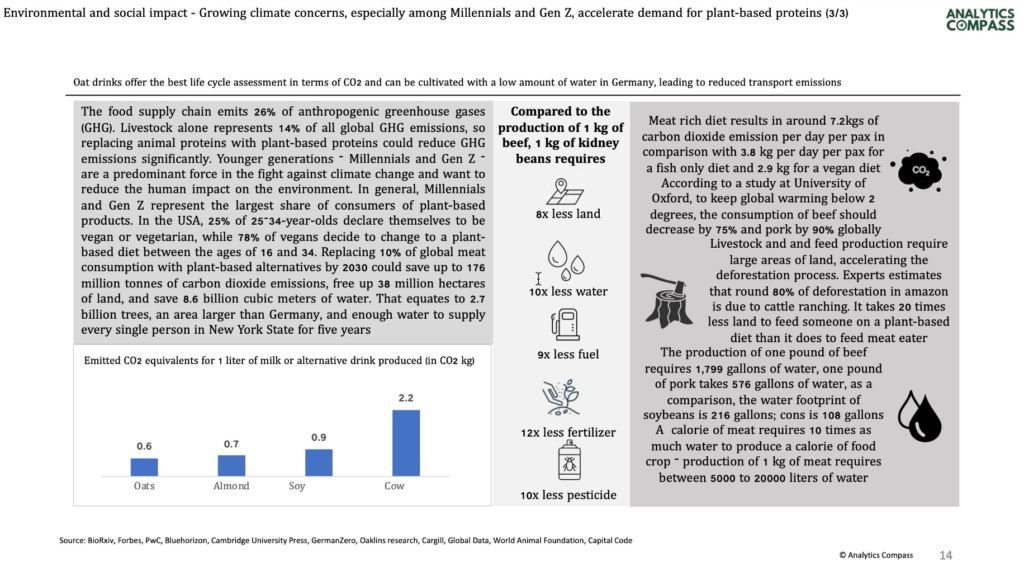Environmental and social impact – Growing climate concerns, especially among Millennials and Gen Z, accelerate demand for plant-based proteins
- August 2, 2024
- Plant-Based Food Market
Every stakeholder in the plant-based value chain, from crop cultivators to end- product distributors and consumers, must remain committed to improving environmental and social impact to reap the benefits of the protein transition. The measurement of the environmental impact can be done through life cycle assessments (LCA), a research methodology used to compile the flow of materials, energy, and resources associated with a product or service

The food supply chain emits 26% of anthropogenic greenhouse gases (GHG). Livestock alone represents 14% of all global GHG emissions, so replacing animal proteins with plant-based proteins could reduce GHG emissions significantly. Younger generations – Millennials and Gen Z – are a predominant force in the fight against climate change and want to reduce the human impact on the environment